Find Help
More Items From Ergsy search
-

Falls Prevention - strength and balance exercises
Relevance: 100%
-

Falls and Falls Prevention
Relevance: 57%
-

Do mixed exercises help in preventing injuries?
Relevance: 54%
-

Do mixed exercises help in achieving a balanced physique?
Relevance: 52%
-

What role does strength training play in mixed exercises?
Relevance: 52%
-
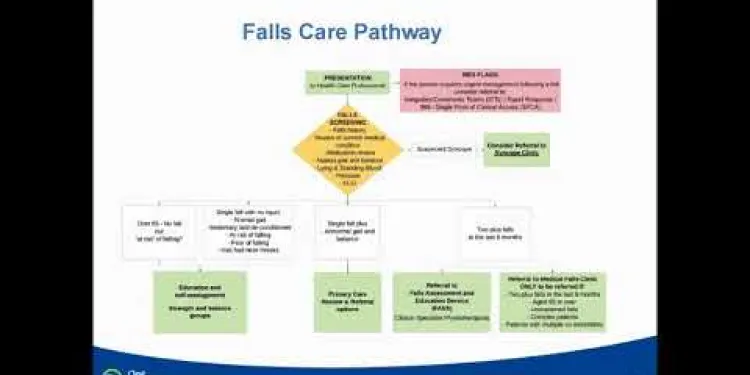
Falls Prevention Podcast
Relevance: 48%
-

Exercise in patients with a neuropathy
Relevance: 46%
-

Falls Prevention video for patients attending hospital
Relevance: 44%
-

Why are mixed exercises better ?
Relevance: 43%
-

ACL exercises post-operation
Relevance: 42%
-

How can I design a mixed exercise routine?
Relevance: 42%
-
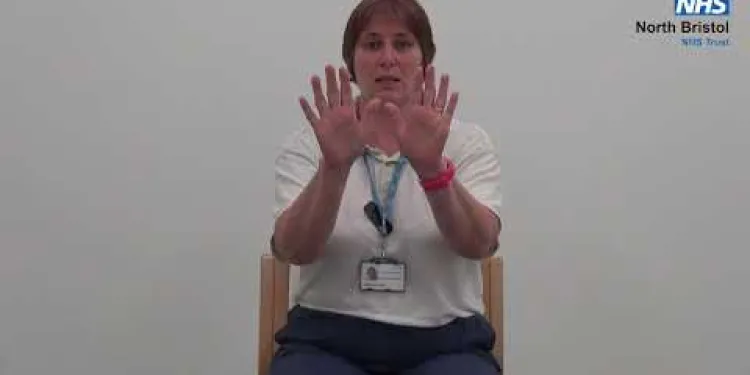
Shoulder Exercises 1
Relevance: 41%
-

Can mixed exercises prevent workout monotony?
Relevance: 41%
-

Do mixed exercises build endurance?
Relevance: 40%
-

Why should I incorporate mixed exercises into my routine?
Relevance: 40%
-

Will mixed exercises improve my athletic performance?
Relevance: 40%
-

Are mixed exercises beneficial for weight loss?
Relevance: 40%
-
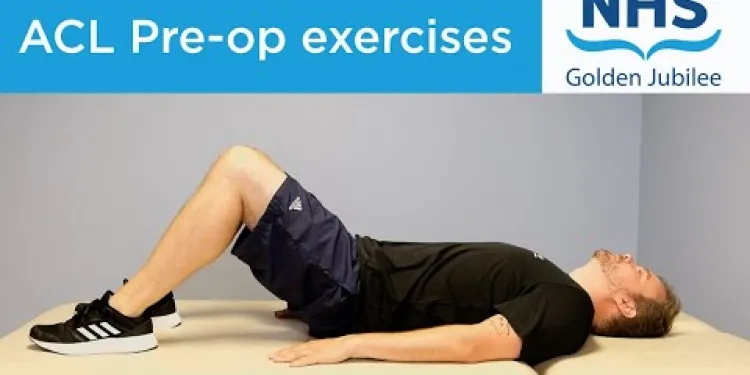
ACL pre-operation exercises
Relevance: 40%
-
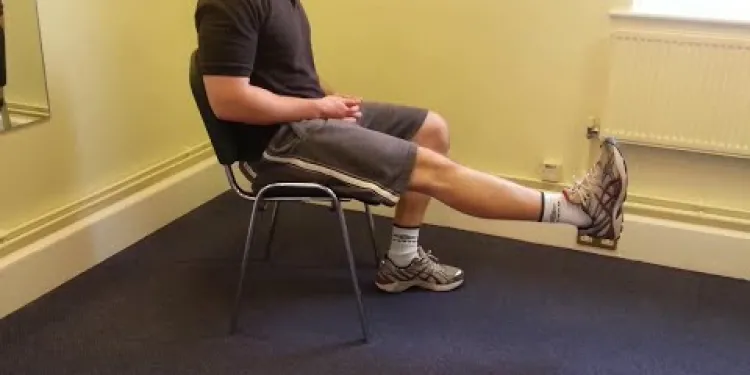
Knee Care Exercises
Relevance: 39%
-

What exercises can I do during pregnancy?
Relevance: 39%
-
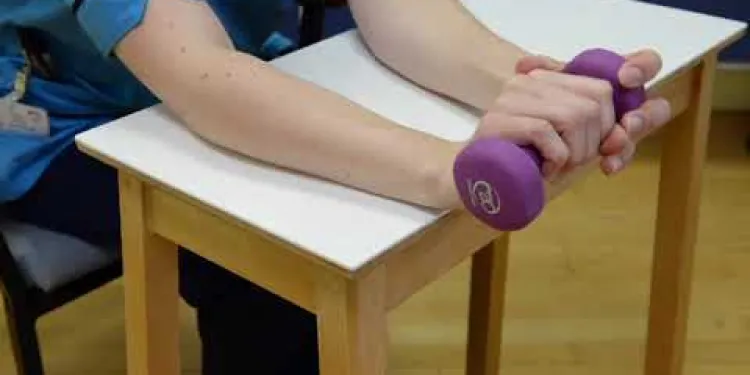
Elbow Eccentric Strengthening Exercise
Relevance: 39%
-

Will I be able to engage in physical exercise?
Relevance: 39%
-

What are mixed exercises?
Relevance: 39%
-

Neck Exercises
Relevance: 39%
-

What types of exercise are beneficial for bowel cancer patients?
Relevance: 38%
-

Can exercise help prevent gestational diabetes?
Relevance: 38%
-

How do mixed exercises impact cardiovascular health?
Relevance: 38%
-

Neck Exercises
Relevance: 38%
-

Is it suitable for beginners to try mixed exercises?
Relevance: 38%
-

How often should I do mixed exercises?
Relevance: 38%
-

How do mixed exercises aid in functional fitness?
Relevance: 37%
-
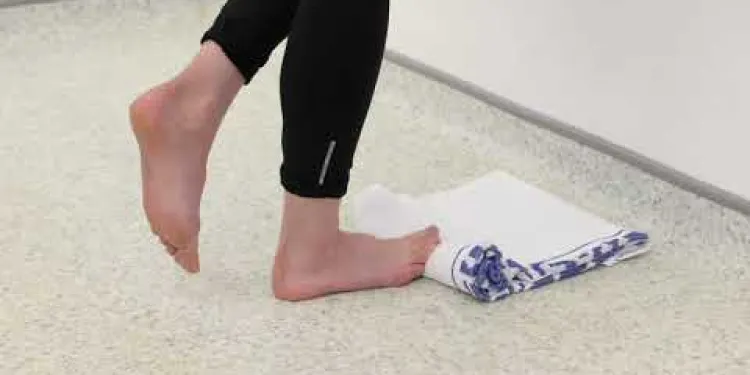
Plantar Fascia Loading Exercise (High Load Exercise)
Relevance: 37%
-

How do mixed exercises enhance flexibility?
Relevance: 37%
-

Are there any exercises to avoid during pregnancy?
Relevance: 37%
-

Physiotherapy Exercises following an Ankle Fracture
Relevance: 37%
-

How does exercise benefit pregnancy?
Relevance: 37%
-

Can mixed exercises be done at home?
Relevance: 36%
-

Joint School - Hip Exercises
Relevance: 36%
-

Is it necessary to have equipment for mixed exercises?
Relevance: 36%
-

Can exercises help with labor preparation?
Relevance: 35%
Falls Prevention: Strength & Balance Exercises
The Importance of Preventing Falls
Falls are a major health concern, especially among older adults in the United Kingdom. Each year, around one in three people aged 65 and over will experience a fall, which can lead to serious injuries such as hip fractures or head trauma. Implementing strength and balance exercises into your daily routine can significantly decrease the risk of falling, enhancing overall safety and well-being.
Strength Exercises
Strength exercises are essential for maintaining muscle mass, improving bone density, and ensuring overall physical resilience. Key exercises include:
- Leg Lifts: Using a chair for support, lift one leg to the side and hold for a few seconds. Repeat, alternating legs.
- Squats: Stand with feet shoulder-width apart, bend at the knees, and lower your body as if sitting back into a chair.
- Heel Raises: Stand with feet hip-width apart, rise onto your toes, and slowly lower back down.
Balance Exercises
Balance exercises help improve stability and coordination, reducing the likelihood of falls. Effective balance exercises include:
- Tai Chi: This gentle form of martial arts involves slow, controlled movements that enhance balance.
- Heel-to-Toe Walk: Walk in a straight line, placing the heel of one foot directly in front of the toes of the other foot.
- Single-Leg Stance: Stand on one leg for as long as possible, then switch to the other leg. Use a chair or wall for support if needed.
Incorporating Exercises into Daily Life
Integrating these exercises into your daily routine can be simple and practical. Set aside dedicated times each day or week to perform your strength and balance exercises. Consider joining local classes or community groups in the UK that specialise in falls prevention fitness. Always consult with your GP or a healthcare provider before beginning any new exercise regimen to ensure it is safe for your individual health needs.
Conclusion
By taking proactive steps to include strength and balance exercises in your life, you can significantly reduce the risk of falls and improve your quality of life. Stay active, stay safe, and enjoy the many benefits of a strong and balanced body.
Falls Prevention: Strength & Balance Exercises
Why It's Important to Prevent Falls
Falls are a big health worry for older people in the UK. Every year, about one in three people aged 65 or older will fall down. This can cause bad injuries like broken hips or head injuries. Doing strength and balance exercises every day can help stop falls and keep you safe and healthy.
Strength Exercises
Strength exercises help you keep your muscles strong, make your bones healthy, and stay fit. Some good exercises are:
- Leg Lifts: Use a chair to help you balance. Lift one leg to the side and hold it for a few seconds. Then do the other leg.
- Squats: Stand with your feet as wide as your shoulders. Bend your knees and lower your body like you are sitting in a chair.
- Heel Raises: Stand with your feet as wide as your hips. Go up on your toes and then slowly go back down.
Balance Exercises
Balance exercises help you stay steady and move better. This can stop falls. Try these exercises:
- Tai Chi: This is a slow and gentle form of exercise. It helps you balance.
- Heel-to-Toe Walk: Walk in a straight line. Put the heel of one foot right in front of the toes of the other foot.
- Single-Leg Stance: Stand on one leg for as long as you can. Then switch legs. Use a chair or wall to help if you need.
Adding Exercises to Your Day
Adding these exercises to your day can be easy. Make a plan to do them each day or each week. You can also join local classes or groups in the UK that focus on preventing falls. Always talk to your doctor before you start new exercises to make sure they are safe for you.
Conclusion
By doing strength and balance exercises, you can make falling less likely and enjoy a better life. Stay active, stay safe, and enjoy a strong and balanced body.
Frequently Asked Questions
Why are strength and balance exercises important for falls prevention?
Strength and balance exercises help improve muscle strength, flexibility, and stability, reducing the risk of falls, which is especially important for older adults.
How often should I do strength and balance exercises?
It's recommended to perform strength and balance exercises at least two to three times per week to see the best results in reducing fall risk.
What are some examples of balance exercises?
Examples of balance exercises include standing on one leg, heel-to-toe walking, and Tai Chi. These exercises help you maintain stability and control.
What are some examples of strength exercises?
Strength exercises can include activities like leg lifts, squats, wall push-ups, and using resistance bands to work various muscle groups.
Do I need any special equipment for these exercises?
Many strength and balance exercises can be done without special equipment, although items like resistance bands, light weights, and stability balls can enhance the workout.
Can I do these exercises at home?
Yes, most strength and balance exercises can be performed at home with minimal space and equipment.
Is it safe to do these exercises on my own?
While many exercises can be done safely on your own, it's important to follow proper techniques and consider consulting with a healthcare provider or physical therapist, especially if you have existing health conditions.
What should I do if I feel unsteady while exercising?
If you feel unsteady, stop the exercise immediately. Ensure you have a stable support nearby, such as a sturdy chair, and consider speaking with a healthcare professional.
Can these exercises help people who have already had a fall?
Yes, strength and balance exercises can help improve recovery after a fall and reduce the likelihood of future falls by increasing strength and stability.
How long does it take to see improvements in balance and strength?
Improvements can be seen in a few weeks with consistent exercise. However, it can take a few months to see significant progress depending on the individual's starting point and frequency of exercise.
Are there exercise classes specific to falls prevention?
Yes, many community centres and health organisations in the UK offer classes specifically designed for falls prevention, focusing on strength and balance.
Is walking considered a balance exercise?
While walking is good for overall fitness, specific balance exercises that challenge your stability, such as standing on one leg or heel-to-toe walking, are more effective for improving balance.
Can these exercises benefit all ages?
Yes, while they are particularly beneficial for older adults, strength and balance exercises can help people of all ages improve their overall stability and prevent falls.
What should I wear when doing these exercises?
Wear comfortable clothing and supportive shoes that provide good grip. Avoid loose, baggy clothing that could cause you to trip.
How can I stay motivated to do these exercises regularly?
Set achievable goals, track your progress, and consider joining a group or class for social support. Regularly remind yourself of the benefits, such as reduced fall risk and improved mobility.
Why is it good to do strength and balance exercises to stop falls?
Doing exercises to get stronger and have better balance is good for your muscles. It helps you move better and makes it easier to stay steady on your feet. This is really important for older people so they don't fall down.
How often should I do strength and balance exercises?
It is good to do strength and balance exercises 2 to 3 times a week. These exercises help you get strong and keep your balance, so you do not fall.
If you want help, you can use videos or ask someone to help you. Remember to take breaks when you need to.
It is good to do strength and balance exercises 2 to 3 times every week. This helps you avoid falling down.
What are some balance exercises?
Here are some exercises that help you keep your balance:
- Stand on one leg. Try to stay still and not fall over.
- Walk like this: put the heel of one foot right in front of the toes of the other foot, like walking on a line.
- Try Tai Chi. It is a gentle exercise that helps you move better.
You can use chairs or walls to help you stay steady if you need to.
What are some strength exercises?
Here are some easy strength exercises you can try:
- Push-ups: Use your arms to lift your body.
- Squats: Bend your knees like you are sitting on a chair.
- Lunges: Step forward and bend your knees.
- Sit-ups: Lie down and use your tummy muscles to sit up.
These exercises help make your muscles strong. Always ask an adult if you need help or if you are not sure how to do them. You can also use pictures or videos to learn the moves.
Strength exercises help make our muscles strong. We can do simple things like lifting our legs up and down, doing squats (bending our knees like sitting), or pushing against a wall. We can also use stretchy bands to make our muscles work harder.
Do I need special things for these exercises?
You can do many exercises to get strong and keep your balance without any special equipment. But if you have things like stretchy bands, small weights, and big bouncy balls, they can make your workout even better.
Can I do these exercises at home?
Yes, you can do these exercises at home. You do not need special equipment. You can use things you have at home, like a chair or a towel.
If you need help, you can ask someone to show you how to do the exercises. You can also watch videos online. Remember to take breaks if you feel tired.
If something hurts, stop and rest. It is important to stay safe.
Yes, you can do many strength and balance exercises at home. You don’t need much space or equipment.
Can I do these exercises by myself safely?
Some exercises are safe to do by yourself. But you should be careful and do them the right way. If you have health problems, it's a good idea to talk to a doctor or therapist first.
Here are some tips to help:
- Follow easy steps when you exercise.
- Ask a doctor if you are not sure what to do.
- Write down how you feel when you exercise.
What to do if you feel unsteady when you exercise?
If you feel wobbly, stop right away. Make sure you have something strong to hold, like a strong chair. It might be a good idea to talk to a doctor or nurse.
Can these exercises help people who have already fallen down?
Yes, doing exercises that make you stronger and help you balance can help you get better after a fall. They can also help you not fall again. These exercises make your body stronger and more steady.
How long until you get better at balance and strength?
You can see yourself getting stronger and healthier in a few weeks if you exercise regularly. But it might take a few months to see big changes. This depends on how fit you are when you start and how often you exercise.
Are there special exercise classes to stop falls?
Yes, lots of community centres and health groups in the UK have special classes to help stop falls. These classes help people get stronger and have better balance.
Is walking a balance exercise?
Walking can help you practice balance. Balance is when you stay steady and don’t fall. Walking is a good way to practice this. You use your legs and keep steady when you walk.
If you want to get better at balance, you can also try other exercises. Standing on one leg or walking on a line can help too. Ask someone to help you if you need it.
Walking is good for your health, but if you want to get better at balancing, try these exercises:
- Stand on one leg.
- Walk like you are on a line, putting one foot in front of the other (heel-to-toe).
These exercises can help you balance better than just walking.
Can everyone do these exercises?
Yes, people of all ages can try these exercises. It's good for both kids and adults.
If it's a bit tricky, you can ask for help. You can also use pictures or videos to see how to do the exercises. Keep it fun and safe!
Yes, strength and balance exercises are good for everyone, not just older people. These exercises can help all ages stay steady and stop falls.
What clothes should I wear for these exercises?
Wear comfy clothes and shoes that help you walk safely. Don't wear loose clothes that might make you trip.
How can I keep going with my exercises?
Set small goals you can reach. Keep track of how you are doing. You can join a group or class to get help from others. Remember why this is good for you, like helping you move better and not fall down as much.
Useful Links
This website offers general information and is not a substitute for professional advice.
Always seek guidance from qualified professionals.
If you have any medical concerns or need urgent help, contact a healthcare professional or emergency services immediately.
Some of this content was generated with AI assistance. We’ve done our best to keep it accurate, helpful, and human-friendly.
- Ergsy carfully checks the information in the videos we provide here.
- Videos shown by Youtube after a video has completed, have NOT been reviewed by ERGSY.
- To view, click the arrow in centre of video.
- Most of the videos you find here will have subtitles and/or closed captions available.
- You may need to turn these on, and choose your preferred language.
- Go to the video you'd like to watch.
- If closed captions (CC) are available, settings will be visible on the bottom right of the video player.
- To turn on Captions, click settings .
- To turn off Captions, click settings again.
More Items From Ergsy search
-

Falls Prevention - strength and balance exercises
Relevance: 100%
-

Falls and Falls Prevention
Relevance: 57%
-

Do mixed exercises help in preventing injuries?
Relevance: 54%
-

Do mixed exercises help in achieving a balanced physique?
Relevance: 52%
-

What role does strength training play in mixed exercises?
Relevance: 52%
-

Falls Prevention Podcast
Relevance: 48%
-

Exercise in patients with a neuropathy
Relevance: 46%
-

Falls Prevention video for patients attending hospital
Relevance: 44%
-

Why are mixed exercises better ?
Relevance: 43%
-

ACL exercises post-operation
Relevance: 42%
-

How can I design a mixed exercise routine?
Relevance: 42%
-

Shoulder Exercises 1
Relevance: 41%
-

Can mixed exercises prevent workout monotony?
Relevance: 41%
-

Do mixed exercises build endurance?
Relevance: 40%
-

Why should I incorporate mixed exercises into my routine?
Relevance: 40%
-

Will mixed exercises improve my athletic performance?
Relevance: 40%
-

Are mixed exercises beneficial for weight loss?
Relevance: 40%
-

ACL pre-operation exercises
Relevance: 40%
-

Knee Care Exercises
Relevance: 39%
-

What exercises can I do during pregnancy?
Relevance: 39%
-

Elbow Eccentric Strengthening Exercise
Relevance: 39%
-

Will I be able to engage in physical exercise?
Relevance: 39%
-

What are mixed exercises?
Relevance: 39%
-

Neck Exercises
Relevance: 39%
-

What types of exercise are beneficial for bowel cancer patients?
Relevance: 38%
-

Can exercise help prevent gestational diabetes?
Relevance: 38%
-

How do mixed exercises impact cardiovascular health?
Relevance: 38%
-

Neck Exercises
Relevance: 38%
-

Is it suitable for beginners to try mixed exercises?
Relevance: 38%
-

How often should I do mixed exercises?
Relevance: 38%
-

How do mixed exercises aid in functional fitness?
Relevance: 37%
-

Plantar Fascia Loading Exercise (High Load Exercise)
Relevance: 37%
-

How do mixed exercises enhance flexibility?
Relevance: 37%
-

Are there any exercises to avoid during pregnancy?
Relevance: 37%
-

Physiotherapy Exercises following an Ankle Fracture
Relevance: 37%
-

How does exercise benefit pregnancy?
Relevance: 37%
-

Can mixed exercises be done at home?
Relevance: 36%
-

Joint School - Hip Exercises
Relevance: 36%
-

Is it necessary to have equipment for mixed exercises?
Relevance: 36%
-

Can exercises help with labor preparation?
Relevance: 35%


